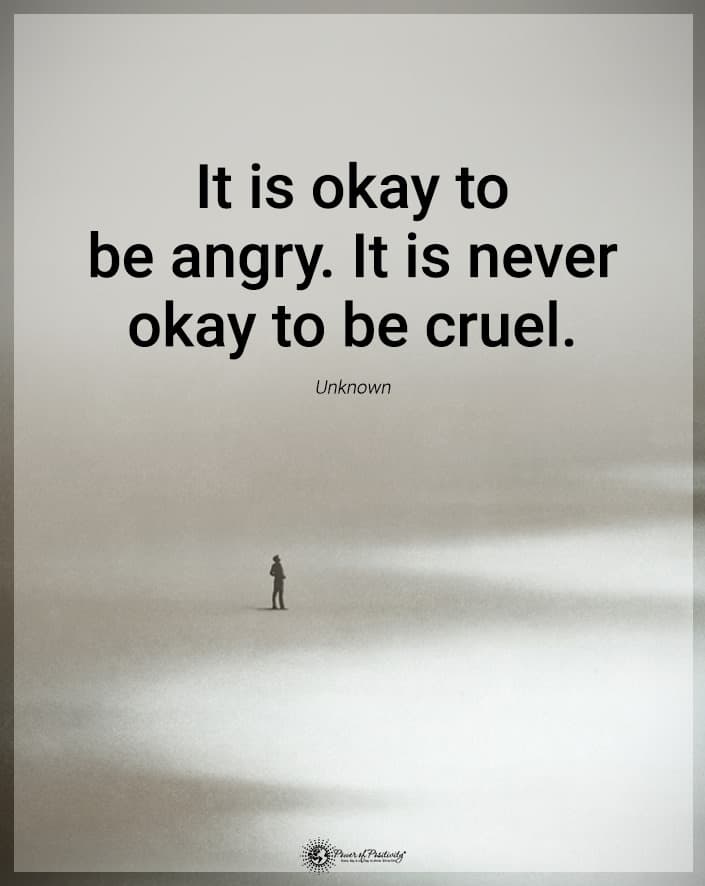If you’re hiking and discover a brick wall blocking your path, you must stop. The only way you can go any farther is if you can get over the wall to the other side. It’s the same situation when someone is stonewalling in a relationship.
This behavior is a form of manipulation or evasiveness. Don’t let them trick you!
Five Ways That People Engage in Stonewalling Others
Are you up against a solid wall of silence that your partner or someone close to you built? How do you know if they are hesitant or intentionally ignoring you? Here are five ways to tell if A person is stonewalling you.
 1. They Ignore Your Conversation and Refuse to Answer Questions
1. They Ignore Your Conversation and Refuse to Answer Questions
If you’re trying to work together to address a difficult situation, you don’t need a silent partner. Even if they have a different opinion, it’s better than no opinion at all. It makes you feel frustrated and defeated when your partner is ignoring what you have to say.
Another part of stonewalling is when the other person won’t answer questions. They refuse to commit to a “yes” or “no” because their mind conflicts. The traditional way a stonewaller will avoid valid questions is to say, “I don’t know,” or shrug their shoulders.
Does this person show you the palm of their hand when you’re talking? It’s a silent and degrading way to tell you to “stop” or “shut up.” A famous saying among teenagers is to “say it to the hand.” The stonewaller attempts to use their hand as a psychological barrier between them and the issue you’re discussing.
A stonewalling partner might also revert to teen years by rolling their eyes at you. This is a classic sign of impatience or having to be long-suffering with your concerns. If they avoid eye contact, they probably aren’t engaged in active listening, or they can’t deal with the subject you’re discussing.
2. They Walk Away or Do Something Else for Distraction
Perhaps the ultimate disrespect is for someone to turn their back on you in the middle of a serious conversation. Like the hand signal, it’s their way of avoiding the issue. They’ve turned their back on your voice like an ostrich in the sand, hoping the conversation will disappear.
Sometimes, uncommunicative partners will ignore you and do something while you talk. It may be playing on their phone or walking away to do a chore. They may start chatting to someone else in the room or make a call.
Either way, their stonewalling acts as a distraction for their anxiety or to bide time. If you mention that they are disrespecting your opinion, you’re not likely to get an answer. It usually makes them go deeper into their distraction.
3. They are Dismissive of Your Concerns
Nobody has the right to tell another what to think or how to feel. If you bring up an issue that needs to be addressed in your relationship, it’s important to you. It’s hurtful when your mate dismisses your concerns and doesn’t validate your feelings.
According to an article published by the Life Counseling Institute, couples need validation to feel understood, supported, and accepted. It doesn’t matter if you both agree about the matter. When your partner doesn’t validate your opinions or feelings, you feel abandoned and betrayed, says the article.
There’s a time and place for laughter, and during a serious conversation isn’t one of them. If your person stonewalls on a matter, they add insult to injury by attempting to laugh it away. Usually, these chuckles are rooted in sarcasm rather than amusement.
They may also give you the universal sign of dismissal, a sideswiping of the hand. This person doesn’t have to say something to show that they don’t care what you think or how you feel. Not validating one another can cause irreparable damage to your relationship.
4. They Make Fun of You
Stonewallers don’t always rely on silent treatment to deflect an issue. In this case, you may wish they didn’t say anything. Good-natured levity can help intense situations, but not when the laughter is at your expense.
Maybe you’re trying to have a crucial discussion about your budget restraints. They may not want to think about money being tight, so they make a joke of it. Instead of taking you seriously, they may poke fun and call you a “miser” or a “worrywart.”
They might also patronize you by pretending as they care about what you’re saying. If the situation concerns a mistake or shortcoming of theirs, they may laugh it away sarcastically.
5. They Refuse to Take Responsibility
When you’ve done something wrong or missed the mark, your mate will respect you more when you own it. According to a study published by PLOS One, people often shift blame to others to make themselves look better. It’s usually a ploy used by narcissists and other toxic personalities.
It takes an honest person to sit down with their partner to discuss that person’s shortcomings. However, it takes an even bigger person to accept the blame and make amends. Lying, blame-shifting, denying, and verbal abuse only makes the matter worse.
Stonewallers hope to place the blame on another person or “bad luck” as an excuse. They don’t want to admit a failure and block any way you try to discuss it reasonably. Such tactics often lead to a complete breakdown of communication and contribute to a toxic relationship.
 How Does a Stonewalling Person Affect You?
How Does a Stonewalling Person Affect You?
How does it make you feel when you realize that your mate is a stonewaller? You probably feel frustrated, confused, angry, and hurt. It’s as if you’re invisible and have little value in the relationship. Since these tactics often make you lose your feelings of self-worth and empowerment, it’s a form of gaslighting abuse.
As your relationship takes a nosedive, the stonewaller may continue their toxic attitude. However, their control over you may make it difficult for you to exit the relationship. Often, these poisonous people have developed a pattern and may skip from one broken relationship to another.
How is the Stonewaller Affected?
Unfortunately, serial stonewallers never know the joys of an honest and intimate relationship. Their denial may go deeper, and they can often lash out at those closest to them. If they’re blaming you, they may feel like they are being mistreated.
Stonewallers are often confused and angry, so they may feel intimidated if you mention something they don’t like. If your person is a controlling narcissist who is gaslighting you, they may be oblivious to any feelings of guilt.
Is Stonewalling Emotional Abuse?
Not all stonewallers are toxic people. Anybody is apt to avoid extremely uncomfortable conversations or circumstances. So, identifying it as abuse depends on the situation.
It could be that certain subjects make your person feel uncomfortable, or they could have experienced past trauma that causes them to build emotional walls for protection. In these cases, your lover has no intention of manipulating or purposely hurting you.
Whether it’s intentional or not, a stonewaller tactic does nothing to strengthen your relationship. You know your lover best and can usually discern what is motivating them. When stonewalling is chronic with no resolution, you’re in an emotionally abusive situation.
How Can You Effectively Deal with a Stonewaller?
Have you realized that your mate is a stonewaller? Take a step back and consider both of your roles in the relationship. The best way to identify beneficial changes is to look at what is motivating both of your behaviors. Your lover must take responsibility for their actions as you do yours.
If your partner stonewalls on a specific subject or situation, try to see the motivation and open it. They will be less apt to get defensive if you word your comments wisely. It will seem less aggressive and may open an efficient dialogue.
First, try to use “I” statements rather than “you” statements. For example, instead of saying, “You never listen to me,” consider saying, “I feel hurt and unimportant when you don’t listen to me.” Change your wording to put both of you in the conversation.
Try to avoid using the words “always” and “never” in a negative way. “You’re always late for our dates” or “You never think before you say anything” are examples of unhelpful statements. Nix those words and try to be specific instead of generalizing.
Are You a Stonewaller?
After reading some of the signs that someone is being stonewalled, do you see them in your behavior? It’s also possible for both partners to stonewall when communication deteriorates. Frank discussions with your lover can help discuss these issues with a mental health provider.
 Final Thoughts on Stonewalling in a Relationship
Final Thoughts on Stonewalling in a Relationship
For a relationship to survive and thrive, you must have open and honest communication. If your partner builds up barriers that shut you out, it can only lead to problems. If needed, talk to a mental health professional about ways to demolish the stonewall in your relationship and validate each other’s feelings.


















